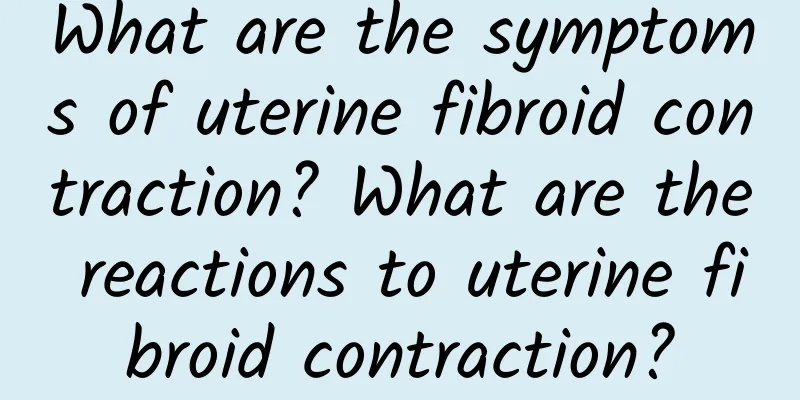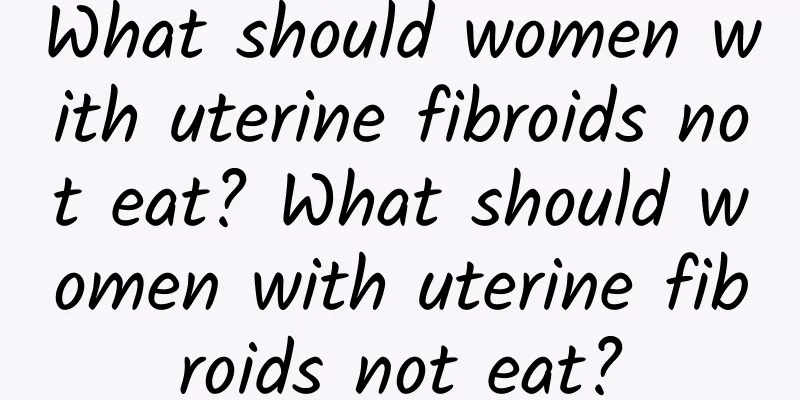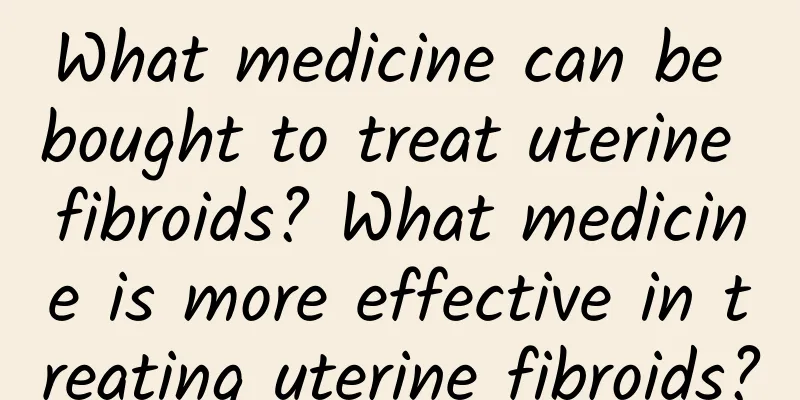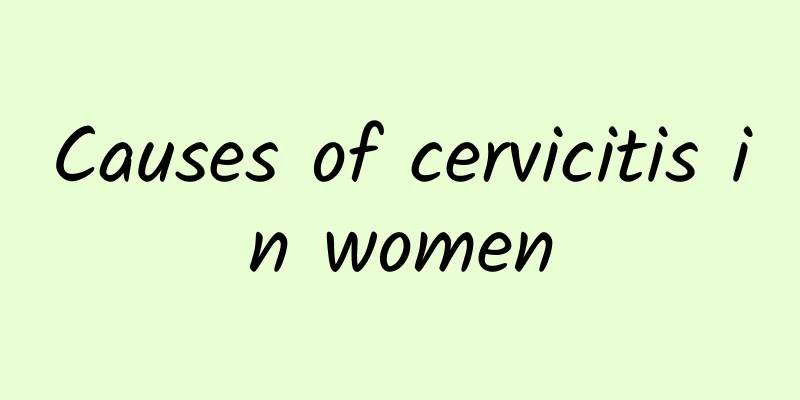What are the symptoms of uterine fibroid contraction? What are the reactions to uterine fibroid contraction?

|
What are the symptoms of uterine fibroid contraction? What are the reactions to uterine fibroid contraction? Uterine fibroids are a common gynecological disease, which refers to a benign tumor that occurs in the myometrium of the uterus. The incidence of uterine fibroids in women is very high, especially in women over 40 years old. Although most uterine fibroids are asymptomatic, some patients will experience symptoms of uterine fibroid shrinkage. This article will introduce the symptoms of uterine fibroid shrinkage and related reactions in detail. 1. Dysmenorrhea: Dysmenorrhea is one of the most common symptoms of uterine fibroid contraction. Due to the growth and compression of fibroids, the contraction ability of the uterus will be enhanced, resulting in pain. This pain mostly occurs during menstruation and is usually more severe than normal dysmenorrhea. 2. Abnormal menstruation: Uterine fibroids may also cause abnormal menstruation due to shrinkage. Patients may experience increased menstrual flow, irregular menstrual cycles, prolonged menstruation, etc. This is mainly because the location and size of the fibroids will affect the normal shedding of the endometrium, thus causing irregular menstruation. 3. Non-menstrual vaginal bleeding: Although it is not related to menstruation, uterine fibroid contraction may also cause patients to experience non-menstrual vaginal bleeding. This bleeding may last for several days or weeks and persist after excluding other potential causes. Non-menstrual vaginal bleeding should be treated promptly to determine the cause. 4. Ectopic tenderness: The contraction of uterine fibroids will expand the uterus and exert pressure on nearby tissues and organs. Patients may experience tenderness or discomfort in the lower abdomen, especially when the fibroids are large. 5. Frequent urination or dysuria: The contraction of uterine fibroids may compress the bladder, causing patients to experience symptoms of frequent urination or dysuria. This is because the distance between the enlarged uterus and the bladder is reduced, and sometimes it can even be touched. The response of uterine fibroids to shrinkage varies. After treatment, the size of the fibroids may decrease and the shrinkage symptoms may decrease or disappear. However, if timely measures are not taken, the uterine fibroids may continue to grow and the shrinkage symptoms may become more obvious. In order to diagnose and treat uterine fibroids, patients should seek medical attention promptly and undergo a detailed gynecological examination. Common examination methods include ultrasound, MRI, and hysteroscopy. Depending on the severity of the condition and the patient's reproductive needs, the doctor may use surgery or medication to manage uterine fibroids. Symptoms of uterine fibroid shrinkage include dysmenorrhea, abnormal menstruation, non-menstrual vaginal bleeding, ectopic tenderness, and dysuria. Early medical treatment and seeking appropriate treatment options can effectively relieve symptoms and improve the patient's quality of life. For women with uterine fibroids, regular gynecological examinations and follow-up are very important to detect changes in the lesions in a timely manner and take appropriate measures. |
Recommend
Explain the specific symptoms of vaginitis
Now, vaginitis is a female disease that generally...
Is uterine cyst serious? How to treat it?
The severity of uterine cysts depends on the spec...
Common treatments for leukoplakia in the elderly
Vulvar leukoplakia is very harmful to female frie...
Mice put on calorie-restricted diet lose fat and gain hair
"Cell Reports" recently published the l...
Check out the three major hazards of pelvic effusion
What are the dangers of pelvic effusion? This is ...
Diagnosis of chronic adnexitis
For most patients with adnexitis, adnexitis can b...
What drugs are prohibited for cervical erosion? Precautions for women's medication for cervical erosion
There are certain contraindications when treating...
Experts teach you a few tricks to treat adnexitis.
Generally speaking, chronic adnexitis is more com...
How to treat cervical erosion after normal delivery? Pay attention to these matters when treating cervical erosion
Many women have a very smooth childbirth, but dev...
Can drinking vinegar delay menstruation? Impossible!
Shanshan's mother is worried that the menstru...
What are the causes of cervical erosion? Summary of 6 causes of cervical erosion
As a gynecological disease, the incidence of cerv...
Do patients with threatened abortion need to take medication for a long time?
Nowadays, more and more pregnant women are experi...
Can’t get rid of excess fat? Have a glass of vinegar, ginger and lemon juice to promote blood circulation and lose weight faster!
Can’t lose body fat, catch a cold easily, and fee...
Is natural biochemical miscarriage considered abortion? What are the significant characteristics?
Is biochemical pregnancy considered miscarriage? ...
Several common symptoms of ovarian cysts
Ovarian cysts are one of the many gynecological d...









